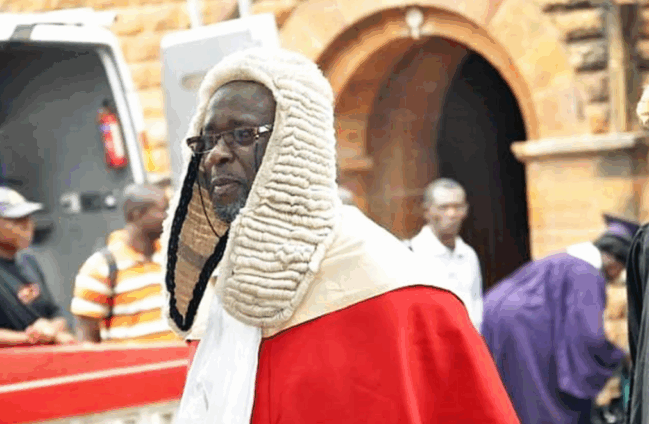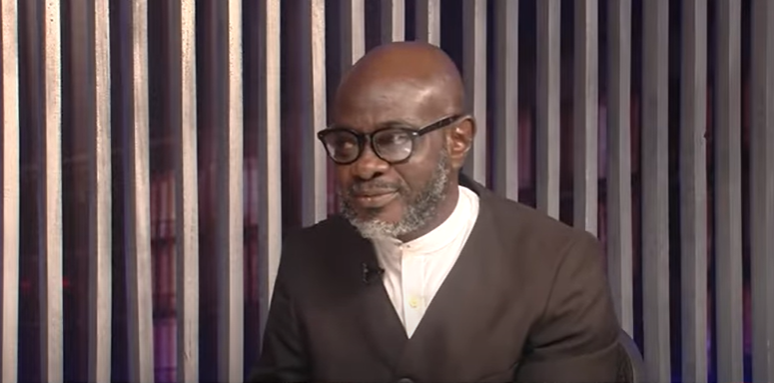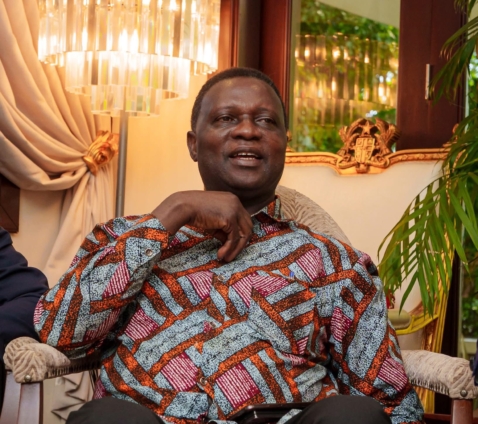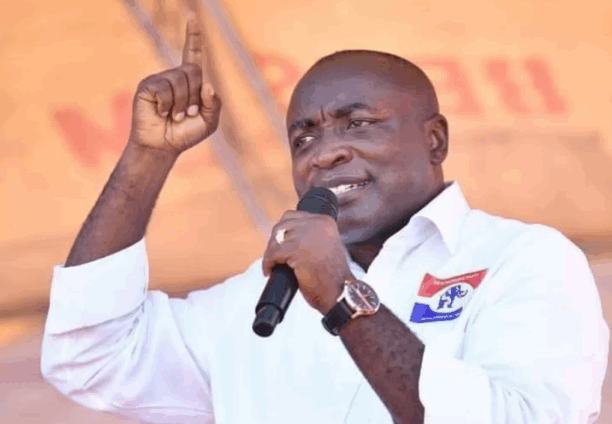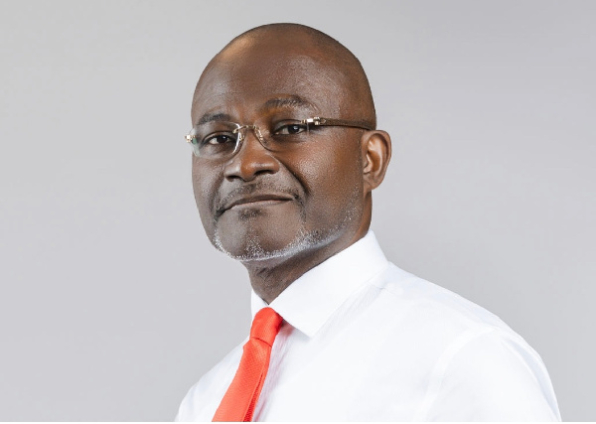OSP vs. SML Scandal Intensifies: Bawumia Embarrassed as Due Process Debate Rages
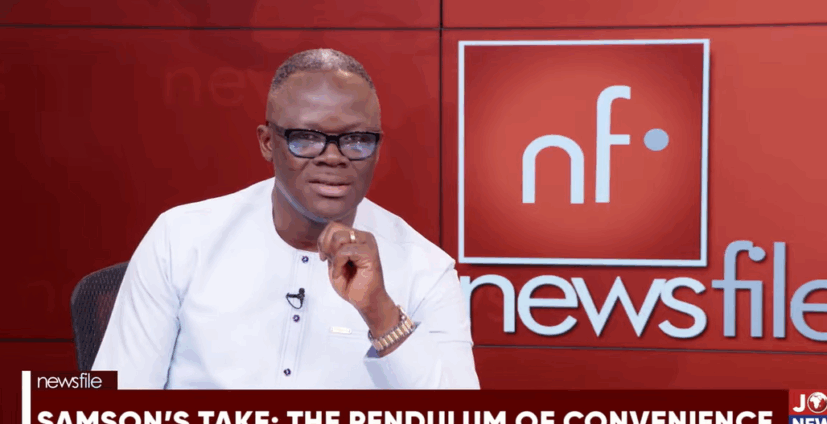
Ghana's governance system is currently facing rigorous tests across three critical fronts: the judiciary within the corridors of Parliament, the digital landscape shaped by new legislation, and the robust pursuit of accountability by the nation’s top prosecutor. These intertwined challenges are sparking intense debates and raising questions about constitutional integrity, digital freedoms, and the application of justice.
In Parliament, a significant standoff has emerged concerning the vetting of Chief Justice-nominee Paul Baffoe-Bonnie. The Minority Caucus is actively pushing to block this process, citing ongoing legal disputes involving the former Chief Justice. They argue that proceeding with the vetting under these circumstances would be unconstitutional and premature. Conversely, the Majority insists that due process is being followed, setting the stage for a contentious debate. Critics, however, warn that an expedited vetting process risks eroding public trust in the judiciary, prompting a fundamental question: Is this parliamentary move a genuine defense of judicial integrity or a strategic act of political brinkmanship?
Simultaneously, Ghana's digital frontier is grappling with a new power struggle stemming from the proposed Cybersecurity (Amendment) Bill, 2025. This bill seeks to grant sweeping new powers to the Cyber Security Authority, including the ability to prosecute cyber-offences and seize digital assets. Proponents of the bill advocate for its necessity, framing it as a crucial modernization effort required to combat evolving AI-driven threats. In stark contrast, digital-rights advocates express profound concerns, viewing the bill as a dangerous step towards increased state surveillance and censorship. This dichotomy forces a critical societal reflection: Are these measures truly safeguarding cyberspace, or are they inadvertently leading to a surrender of individual privacy in the name of protection?
Adding to the nation’s complex governance landscape, the Office of the Special Prosecutor (OSP) has once again taken centre stage with a high-profile corruption case. Following a fiery press briefing, the OSP announced that charges are ready against former Finance Minister Ken Ofori-Atta and five other individuals in connection with the controversial SML-GRA contract saga. This case is anticipated to be heard in court before the end of the month. The OSP's public strategy, however, has drawn scrutiny from legal analysts who question its timing and potential impact, arguing that such public declarations could inadvertently jeopardize due process. Despite these concerns, supporters commend the OSP's approach as a bold move towards transparency in a system historically plagued by secrecy.
Further details surrounding the SML-GRA contract saga have surfaced, with Senyo Hosi, Convenor of the One Ghana Movement, revealing that former Vice President Dr. Mahamudu Bawumia privately expressed profound embarrassment over the contentious arrangement. Mr. Hosi stated that Dr. Bawumia explicitly disassociated himself from the SML-GRA deal, attributing its genesis to former Finance Minister Ken Ofori-Atta and a group of associates. The OSP’s comprehensive investigation into alleged corruption and related offenses uncovered serious financial irregularities. Those expected to face charges alongside Mr. Ofori-Atta include Ernest Akore (former Chef de Cabinet to the Finance Minister), Emmanuel Kofi Nti (former Commissioner-General, GRA), Rev. Ammishaddai Owusu-Amoah (former Commissioner-General, GRA), Isaac Crentsil (former Customs Commissioner and General Manager, SML), and Kwadwo Damoah (former Customs Commissioner and MP for Jaman South).
Amidst these developments, Richard Ahiagbah, the Director of Communications for the New Patriotic Party (NPP), has emphatically stressed the indispensable role of due process within Ghana’s justice system. Appearing on JoyNews’ Newsfile, Mr. Ahiagbah clarified that due process is not a "loophole" for the corrupt but rather the fundamental bedrock of justice itself. He cautioned against any actions that might undermine procedural justice in the zealous pursuit of accountability, warning that such an approach could erode public confidence in the legal system and establish a perilous precedent. Drawing on a remark by former President Akufo-Addo, Mr. Ahiagbah underscored that due process serves as a vital safeguard for all citizens, ensuring that individual rights are respected, regardless of whether they are the accuser or the accused.
You may also like...
The Crack in Nigeria’s Christian Genocide Debate

As violence grips Nigeria’s Middle Belt, the world debates whether it’s genocide or chaos. With Donald Trump’s threats t...
Pundit Power Play: Troy Deeney's Weekly Premier League Hot Takes Revealed!

BBC football pundit Troy Deeney will present his weekly choices for the Premier League's team and manager of the week af...
Google's Shocking Refusal: Disney's ABC Blacked Out on YouTube TV for Election Night

A fee dispute between Disney and Google has led to a blackout of ESPN, ABC, and other Disney networks on YouTube TV, now...
Taiwan Creative Content Fest Kicks Off with Global Buzz and Local Hit '96 Minutes' Success

The 2025 Taiwan Creative Content Fest (TCCF) has opened with record international attendance, signaling a dramatic turna...
Shocking Assault Halts Todd Snider Tour! Americana Star Injured Before Salt Lake City Show

Americana singer/songwriter Todd Snider has canceled his entire “High, Lonesome and Then Some 2025” tour after sustainin...
Queen of Global Tours: Shakira Claims Billboard Icon Award, Declares She's Just Warming Up!
Shakira received the inaugural Billboard Global Touring Icon Award for her record-breaking Las Mujeres Ya No Lloran Worl...
Loose Women's Charlene White: Unveiling Her Personal Poppy Stance

Loose Women panellist Charlene White sparked debate by choosing not to wear a poppy on air, a decision that drew both cr...
Wizkid’s Son Boluwatife Balogun Poised for Music Debut with First Song!

Wizkid's son, Boluwatife Balogun, is reportedly gearing up to release his debut track, showcasing a distinct hip-hop and...
